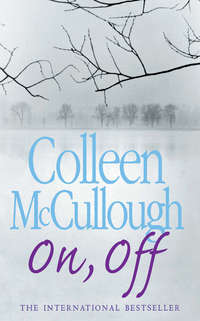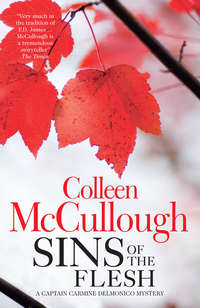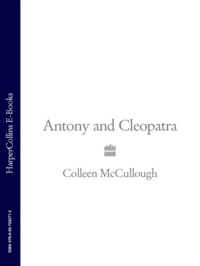
Полная версия
Angel
My curiosity about Kings Cross is going to be gratified on Saturday, when I am to have dinner at Pappy’s place. However, I shan’t tell Mum and Dad exactly whereabouts Pappy lives. I’ll just say it’s on the fringe of Paddington.
Tonight’s wish: That Kings Cross isn’t a let-down.
Friday,January 8th, 1960
Last night we had a bit of a crisis with Willie. It’s typical of Mum that she insisted on rescuing this baby cockatoo off the Mudgee road and rearing it. Willie was so scrawny and miserable that Mum started him off on a dropper of warm milk laced with the three-star hospital brandy we keep for Granny’s funny little turns. Then, because his beak wasn’t hard enough yet to crack seed, she switched to porridge laced with three-star hospital brandy. So Willie grew up into this gorgeous, fat white bird with a yellow comb and a daggy breast caked with dried porridge. Mum has always given him his porridge-and-brandy in the last of the Bunnyware saucers I had when I was a toddler. But yesterday she broke the Bunnyware saucer, so she put his dinner in a bilious green saucer instead. Willie took one look, flipped his uneaten dinner upside down and went bonkers—screeched high C without letting up until every dog in Bronte was howling and Dad had a visit from the Boys in Blue, who arrived in a paddy wagon.
I daresay it’s all those years of reading whodunits sharpened my deductive powers, because, after a hideous night of a screeching parrot and a thousand howling dogs, I realised two facts. One, that parrots are intelligent enough to discern a saucer with cute little bunnies running around its rim from a saucer of bilious green. Two, that Willie is an alcoholic. When he saw the wrong saucer, he concluded that his porridge-and-brandy had been withdrawn, and went into withdrawal himself—hence the racket.
Peace was finally restored to Bronte when I got home from work this afternoon. I’d grabbed a taxi at lunchtime and dashed into the city to buy a new Bunnyware saucer. Had to buy the cup as well—two pounds ten! But Gavin and Peter are good scouts, even if they are my big brothers. They each donated a third of the two-and-a-half quid, so I’m not much out of pocket. Silly, isn’t it? But Mum so loves that dippy bird.
Saturday,January 9th, 1960
Kings Cross is certainly not a let-down. I got off the bus at the stop before Taylor Square and walked the rest of the way with Pappy’s directions memorised. Apparently they don’t eat very early at Kings Cross, because I didn’t have to be there until eight, so by the time I got off the bus it was quite dark. Then as I passed Vinnie’s Hospital it began to rain—just a drizzle, nothing that my frilly pink brolly couldn’t handle. When I reached that huge intersection I believe is the actual Kings Cross, seeing it on foot with the streets wet and the dazzle of all those neons and car lights rippling across the water was completely different from whizzing through it in a taxi. It’s beautiful. I don’t know how the shopkeepers avoid the Sydney Blue Laws, because they were still open on a Saturday evening! Though it was a bit disappointing when I realised that my route didn’t lie along the Darlinghurst Road shops—I had to walk down Victoria Street, in which The House is situated. That’s what Pappy calls it, “The House”, and I know she says it with capital letters. As if it is an institution. So I admit that I hiked past the terraced houses of Victoria Street eagerly.
I love the rows upon rows of old Victorian terraced houses inner Sydney has—not kept up these days, alas. All the lovely cast-iron lace has been ripped off and replaced by sheets of fibro to turn the balconies into extra rooms, and the plastered walls are dingy. Even so, they’re very mysterious. The windows are blanked out by Manchester lace curtains and brown-paper blinds, like closed eyes. They’ve seen so much. Our house at Bronte is only twenty-two years old; Dad built it after the worst of the Depression, when his shop started making money. So nothing’s happened in it except us, and we are boring. Our biggest crisis is Willie’s saucer—at least, that’s the only time the police have called on us.
The House was a long way down Victoria Street, and as I walked I noticed that at this far end some of the terraced houses still had their cast-iron lace, were painted and well kept-up. Right at the end beyond Challis Avenue the street widened into a semicircular dead end. Apparently the Council had run out of tar, because the road was cobbled with little wooden blocks, and I noticed that within the semicircle no cars were parked. This gave the crescent of five terraced houses which filled it an air of not belonging to the present. They were all numbered 17—17a, b, c, d and e. The one in the middle, 17c, was The House. It had a fabulous front door of ruby glass etched in a pattern of lilies down to the clear glass underneath, the bevels glittering amber and purple from the light inside. It wasn’t locked, so I pushed it open.
But the fairytale door led into a desert waste. A dingy hall painted dirty cream, a red cedar staircase leading upward, a couple of fly-dirt-speckled naked lightbulbs on long, twisted brown cords, awful old brown linoleum pitted from stiletto heels. From the skirting boards to a height of about four feet, every single bit of wall I could see was smothered in scribbles, aimless loops and whorls of many colours with the waxy look of crayon.
“Hello!” I yelled.
Pappy appeared from beyond the staircase, smiling a welcome. I think I stared quite rudely, she looked so different. Instead of that unflattering bright mauve uniform and hair-hiding cap, she wore a skin-tight tube of peacock blue satin embroidered in dragons, and it was split so far up her left leg that I could see the top of her stocking and a frilly lace suspender. Her hair cascaded down her back in a thick, straight, shining mass—why can’t I have hair like that? Mine is just as black, but it’s so curly that if I grew it long it’d stick out like a broom in an epileptic fit. So I hack mine really short with a pair of scissors.
She led me through a door at the end of the passage beside the stairs and we emerged into another, much shorter hall which went sideways and seemed to end in the open air. It held only the one door, which Pappy opened.
Inside was Dreamland. The room was so chocka with books that the walls were invisible, just books, books, books, floor up to ceiling, and there were stacks of books lying around that I suspect she’d cleared off her chairs and table in order to entertain me. During the course of the evening I tried to count them, but there were too many. Her collection of lamps knocked me sideways, they were so gorgeous. Two dragonfly stained-glass ones, an illuminated globe of the world on a stand, kerosene lamps from Indonesia converted to electricity, one that looked like a white chimney six feet tall, overlaid with slashed purple swellings. The ceiling bulb was inside a Chinese paper lantern dripping silk tassels.
Then she proceeded to cook food that bore no relationship to the chow-meow from Hoo Flung’s up Bronte Road. My tongue smarting gently from ginger and garlic, I shovelled in three helpings. There is nothing wrong with my appetite, though I never manage to keep enough weight on to graduate from a B to a C cup bra. Darn. Jane Russell is a full D cup, but I’ve always thought that Jayne Mansfield is only a B cup on top of a huge rib cage.
When we’d finished and drunk a pot of fragrant green tea, Pappy announced that it was time to go upstairs and meet Mrs. Delvecchio Schwartz. The landlady.
When I remarked that it was a peculiar name, Pappy grinned.
She led me back to the front hall and the red cedar staircase. As I followed her up, consumed with curiosity, I noticed that the crayon scribbles didn’t stop. Rather, they increased. The stairs continued upward to a higher floor, but we went forward to a huge room at the front of the house, and Pappy pushed me inside. If you want to find a room that is the exact opposite of Pappy’s, this one is it. Bare. Except for the scribbles, which were so thick that there wasn’t a scrap of space for more. Maybe because of that, one section had been roughly painted over, apparently to provide the artist with a fresh canvas, as a few scribbles already adorned it. The place could have held six lounge suites and a dining table to seat twelve, but it was mostly empty. There was a rusty chrome kitchen table with a red laminex top, four rusty chairs with the padding of their red plastic seats oozing out like pus from a carbuncle, a velvet couch suffering from a bad attack of alopecia, and an up-to-the-minute refrigerator/freezer. A pair of glass-panelled doors led out onto the balcony.
“Out here, Pappy!” someone called.
We emerged onto the balcony to find two women standing there. The one I saw first was clearly from the Harbourside Eastern Suburbs or the upper North Shore—blue-rinsed hair, a dress that came from Paris, matching shoes, bag and gloves in burgundy kid, and a weeny hat much smarter than the ones Queen Elizabeth wears. Then Mrs. Delvecchio Schwartz stepped forward, and I forgot all about the middle-aged fashion plate.
Phew! What a mountain of a woman! Not that she was fat, more that she was gigantic. A good six foot four in those dirty old slippers with their backs trodden down, and massively muscled. No stockings. A faded, unironed old button-down-the-front house dress with a pocket on either hip. Her face was round, lined, snub-nosed and absolutely dominated by her eyes, which looked straight into my soul, pale blue with dark rings around the irises, little pupils as sharp as twin needles. She had thin grey hair cut as short as a man’s, and eyebrows that hardly showed against her skin. Age? On the wrong side of fifty by several years, I reckon.
As soon as she let my eyes go, my medical training clicked in. Acromegaly? Cushing’s Syndrome? But she didn’t have the huge lower jaw or the jutting forehead of the acromegalic, nor did she have the physique or hairiness of a Cushing’s. Something pituitary or midbrain or hypothalamic, for sure, but what, I didn’t know.
The fashion plate nodded politely to Pappy and me, brushed past us and departed with Mrs. Delvecchio Schwartz in her wake. Because I was standing in the doorway, I saw the visitor reach into her bag, withdraw a thick wad of brick-coloured notes—tenners!—and hand them over a few at a time. Pappy’s landlady just stood there with her hand out until she was satisfied with the number of notes. Then she folded them and slipped them into one pocket while the fashion plate from Sydney’s most expensive suburbs left the room.
Back came Mrs. Delvecchio Schwartz to throw herself onto a mate of the four chairs inside, bidding us sit on two more with a sweep of a hand the size of a leg of lamb.
“Siddown, princess, siddown!” she roared. “How the hell are youse, Miss Harriet Purcell? Good name, that—two sets of seven letters—strong magic! Spiritual awareness and good fortune, happiness through perfected labour—and I don’t mean them lefty politicians, hur-hur-hur.”
The “hur-hur-hur” is a kind of wicked chuckle that speaks volumes; as if there is nothing in the world could surprise her, though everything in the world amuses her greatly. It reminded me of Sid James’s chuckle in the Carry On films.
I was so nervous that I picked up her comments about my name and regaled her with the history of the Harriet Purcells, told her the name went back many generations, but that, until my advent, its owners had all been quite cuckoo. One Harriet Purcell, I said, had been jailed for castrating a would-be lover, and another for assaulting the Premier of New South Wales during a suffragette rally. She listened with interest, sighed in disappointment when I finished my tale by saying that my father’s generation had been so afraid of the name that it didn’t contain a Harriet Purcell.
“Yet your dad christened you Harriet,” she said. “Good man! Sounds like he might be fun to know, hur-hur-hur.”
Oooooo-aa! Hands off my dad, Mrs. Delvecchio Schwartz! “He said he liked the name Harriet, and he wasn’t impressed by family claptrap,” I said. “I was a bit of an afterthought, you see, and everybody thought I’d be another boy.”
“But you wasn’t,” she said, grinning. “Oh, I like it!”
During all of this, she drank undiluted, uniced three-star hospital brandy out of a Kraft cheese spread glass. Pappy and I were each given a glass of it, but one sip of Willie’s downfall made me abandon mine—dreadful stuff, raw and biting. I noticed that Pappy seemed to enjoy the taste, though she didn’t glug it nearly as fast as Mrs. Delvecchio Schwartz did.
I’ve been sitting here debating whether I might save a lot of writer’s cramp by shortening that name to Mrs. D-S, but somehow I don’t have the courage. I don’t lack courage, but Mrs. D-S? No.
Then I became aware that someone else was on the balcony with us, had been there all along but stayed absolutely invisible. My skin began to prickle, I felt a delicious chill, like the first puff of a Southerly Buster after days and days of a century-mark heatwave. A face appeared above the table, peering from around Mrs. Delvecchio Schwartz’s hip. The most bewitching little face, chin pointed, cheekbones high beneath the orbits, flawless beige skin, drifts of palest brown hair, black brows, black lashes so long they looked tangled—oh, I wish I was a poet, to describe that divine child! My chest caved in, I just looked at her and loved her. Her eyes were enormous, wide apart and amber-brown, the saddest eyes I have ever seen. Her little pink rosebud mouth parted, and she smiled at me. I smiled back.
“Oh, decided to join the party, have youse?” The next moment the little thing was on Mrs. Delvecchio Schwartz’s knee, still with her face turned to smile at me, but plucking at Mrs. Delvecchio Schwartz’s dress with one tiny hand.
“This is me daughter, Flo,” said the landlady. “Thought I had the Change four years ago, then got a pain in the belly and went to the dunny thinkin’ I had a dose of the shits. And—bang! There was Flo, squirmin’ on the floor all covered with slime. Never even knew I was up the duff until she popped out—lucky I didn’t drown youse in the dunny, ain’t that right, angel?” This last was said to Flo, who was fiddling with a button.
“How old is she?” I asked.
“Just turned four. A Capricorn who ain’t a Capricorn,” said Mrs. Delvecchio Schwartz, casually unbuttoning her dress. Out flopped a breast which looked like an old stocking with its toe stuffed with beans, and she stuck its huge, horny nipple in Flo’s mouth. Flo shut her eyes ecstatically, leaned back into her mother’s arm and began to suck away with long, horribly audible slurps. I sat there with my mouth catching flies, unable to think of a thing to say. The X-ray vision lifted to focus on me.
“Loves her mother’s milk, does Flo,” she said chattily. “I know she’s four, yeah, but what’s age got to do with it, princess? Best tucker of all, mother’s milk. Only thing is, her teeth are all in, so she hurts like hell.”
I went on sitting there with my mouth catching flies until Pappy said, quite suddenly, “Well, Mrs. Delvecchio Schwartz, what do you think?”
“I think The House needs Miss Harriet Purcell,” said Mrs. Delvecchio Schwartz with a nod and a wink. Then she looked at me and asked, “Ever think of movin’ outta home, princess? Like into a nice little flat of your own?”
My mouth shut with a snap, I shook my head. “I can’t afford it,” I answered. “I’m saving to go to England on a two-year working holiday, you see.”
“Do youse pay board at home?” she asked.
I said I paid five pounds a week.
“Well, I got a real nice little flat out in the backyard, two big rooms, four quid a week, electricity included. There’s a bath and dunny inside the laundry that only you and Pappy’d use. Janice Harvey, me tenant, is movin’ out. It’s got a double bed,” she added with a leer. “Hate them piddly-arse little single beds.”
Four pounds! Two rooms for four pounds? A Sydney miracle!
“You stand a better chance of getting rid of David living here than at home,” said Pappy persuasively. She shrugged. “After all, you’re on a male award, you could still save for your trip.”
I remember swallowing, hunting desperately for a polite way to say no, but suddenly I was saying yes! I don’t know where that yes came from—I certainly wasn’t thinking yes.
“Ripper-ace, princess!” boomed Mrs. Delvecchio Schwartz, flipped the nipple out of Flo’s mouth and lumbered to her feet.
As my eyes met Flo’s, I knew why I’d said yes. Flo put the word into my mind. Flo wanted me here, and I was putty. She came over to me and hugged my legs, smiling up at me with milky lips.
“Will youse look at that?” Mrs. Delvecchio Schwartz exclaimed, grinning at Pappy. “Be honoured, Harriet. Flo don’t usually take to people, do you, angel?”
So here I am, trying to write it all down before the edges blur, wondering how on earth I’m going to break it to my family that, very shortly, I am moving into two big rooms at Kings Cross, home to alcoholics, prostitutes, homosexuals, satanic artists, glue-sniffers, hashish-smokers and God knows what else. Except that what I saw of it in the rainy dark I liked, and that Flo wants me in The House.
I’d said to Pappy that perhaps I could say that The House was in Potts Point, not Kings Cross, but Pappy only laughed.
“Potts Point is a euphemism, Harriet,” she said. “The Royal Australian Navy owns Potts Point whole and entire.”
Tonight’s wish: That the parents don’t have a stroke.
Sunday,January 10th, 1960
I haven’t told them yet. Still getting up the courage. When I went to bed last night—Granny was snoring a treat—I was sure that when I woke up this morning, I would change my mind. But I haven’t. The first thing I saw was Granny squatting over Potty, and the iron entered my soul. That’s such a good phrase! I never realised until I started writing this that I seem to have picked up all sorts of good phrases from reading. They don’t surface in conversation, but they certainly do on paper. And though this is only a few days old, I’m already well into a fat exercise book, and I’m quite addicted. Maybe that’s because I can never sit still and think, I always have to be doing something, so now I’m killing two birds with the same stone. I get to think about what’s happening to me, yet I’m doing something at the same time. There’s a discipline about writing the stuff down, I see it better. Just like my work. I give it all my attention because I enjoy it.
I haven’t quite made up my mind about Mrs. Delvecchio Schwartz, though I do like her very much. She reminds me of some of my more memorable patients, those who manage to stay with me for as long as I’ve been doing X-rays, maybe are going to stay with me for the rest of my life. Like the dear old bloke from Lidcombe State Hospital who kept neatly pleating his blanket. When I asked him what he was doing, he said he was folding sail, and then, when I settled to talk to him, he told me he’d been bosun on a windjammer, one of the wheat clippers used to scud home to England loaded to the gunwales with grain. His words, not mine. I learned a lot, then realised that very shortly he was going to die, and all those experiences would die with him because he’d never written them down. Well, Kings Cross is not a windjammer, and I’m no sailor, but if I write it all down, someone sometime in remote posterity might read it, and they’d know what sort of life I lived. Because I have a funny feeling that it isn’t going to be the boring old suburban life I was facing last New Year’s Day. I feel like a snake shedding its skin.
Tonight’s wish: That the parents don’t have a stroke.
Friday,January 15th, 1960
I still haven’t told them, but it’s going to happen tomorrow night. When I asked Mum if David could eat steak-and-chips with us, she said of course; best, I think, to wallop the whole lot of them at the same time. That way, maybe David will get used to the idea before he has enough time alone with me to nag and hector me out of it. How I dread his lectures! But Pappy is right, it is going to be easier to get rid of David if I don’t live at home. That thought alone has kept my course steering for the Cross, as the natives call it. Up at the Cross, to be exact.
I saw a man today at work, on the ramp leading from X-ray to Chichester House, which is the posh red brick building housing the Private Patients in the lap of luxury. A room and a bathroom each, no less, instead of a bed in a row of about twenty down either side of a whacking great ward. Must be awfully nice not to have to lie listening to half the patients vomiting, spitting, hacking or raving. Though there’s no doubt that listening to half the patients vomiting, spitting, hacking or raving is a terrific incentive to get better and get out, or else get the dying over and done with.
The man. Sister Agatha grabbed me as I finished hanging some films in the drying cabinet—so far I haven’t had one ponk film, which awes my two juniors into abject submission.
“Miss Purcell, kindly run these to Chichester Three for Mr. Naseby-Morton,” she said, waving an X-ray envelope at me.
Sensing her displeasure, I took it and hared off. Pappy would have been first on her invitation list, which meant Sister Agatha hadn’t been able to find her. Or else she was holding a vomit bowl or dealing with a bedpan, of course. Mine not to reason why—I hared off like the juniorest junior to the Private Hospital. Very swanky, Chichester House! The rubber floors have such a shine on them that I could see Sister Chichester Three’s pink bloomers reflected there, and you could open a florist shop on the amount of flowers dotted around the corridors on expensive pedestals. It was so quiet that when I bounded off the top step at Chichester Three level, six different people glared at me and put fingers to lips. Ssssssh! Oooooo-aa! So I looked contrite, handed the films over and tiptoed away like Margot Fonteyn.
Halfway down the ramp I saw a group of doctors approaching—an Honorary Medical Officer and his court of underlings. You don’t spend a day working in any hospital without becoming aware that the H.M.O. is God, but God at Royal Queens is a much superior God to God at Ryde Hospital. Here, they wear navy pinstriped or grey flannel suits, Old School ties, French-cuffed shirts with discreet but solid gold links, brown suede or black kid thin-soled shoes.
This specimen wore grey flannel and brown suede shoes. With him were two registrars (long white coats), his senior and junior residents (white suits and white shoes), and six medical students (short white coats) with stethoscopes ostentatiously displayed and nail-bitten hands full of slide cases or test tube racks. Yes, a very senior version of God, to have so many dancing attendance on him. That was what caught my attention. Doing routine chests doesn’t bring one into contact with God, senior or junior, so I was curious. He was talking with great animation to one registrar, fine head thrown back, and I think I had to slow down and shut my mouth, which does have a tendency to catch flies these days. Oh, what a lovely man! Very tall, a good pair of shoulders, a flat tummy. A lot of dark red hair with a kink in it and two snow-white wings, very slightly freckled skin, chiselled features—yes, he was a lovely man. They were talking about osteomalacia, so I catalogued him as an orthopod. Then as I slid by them—they did rather take up all the ramp—I found myself being searchingly regarded by a pair of greenish eyes. Phew! My chest caved in for the second time in a week, though this wasn’t a surge of love like Flo’s. This was a sort of breathless attraction. My knees sagged.
At lunch I quizzed Pappy about him, armed with my theory that he was an orthopod.








